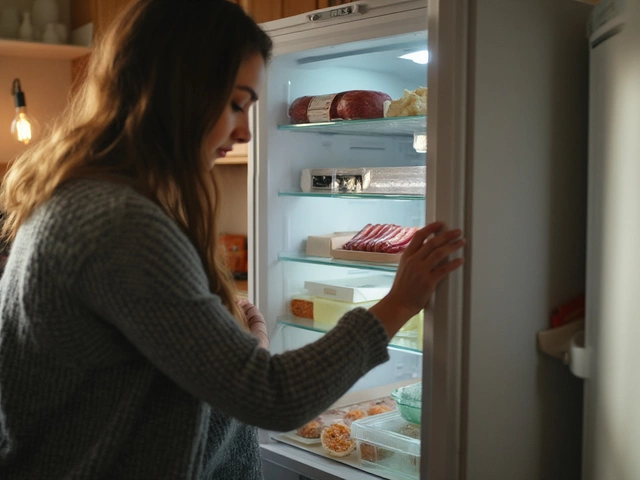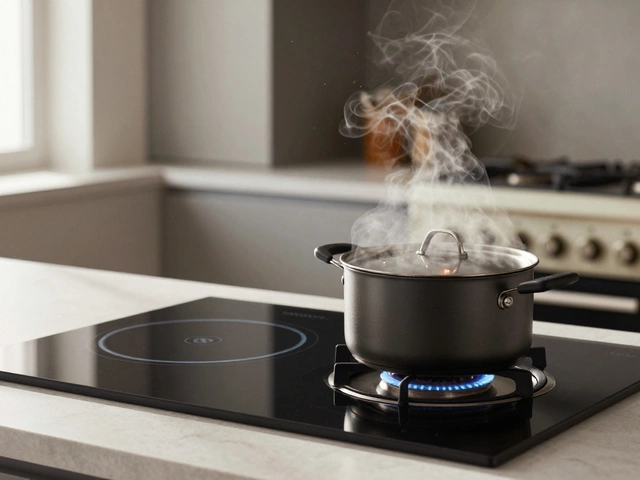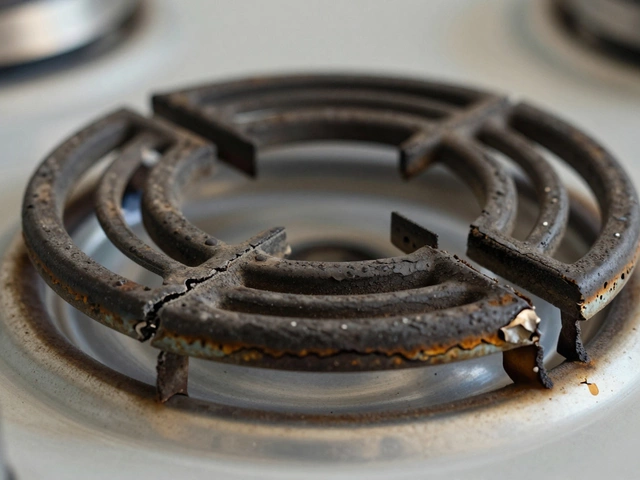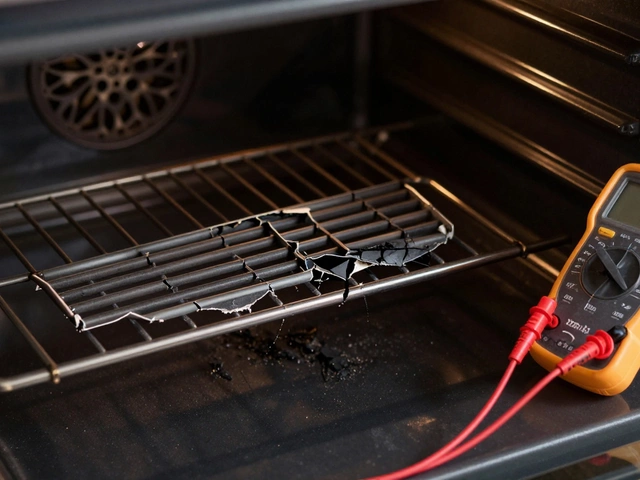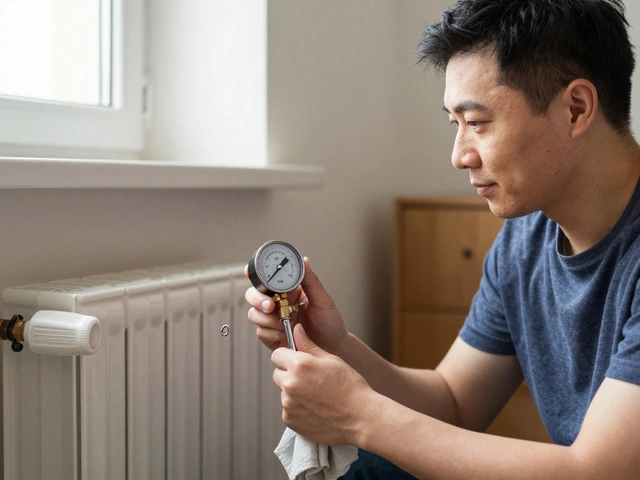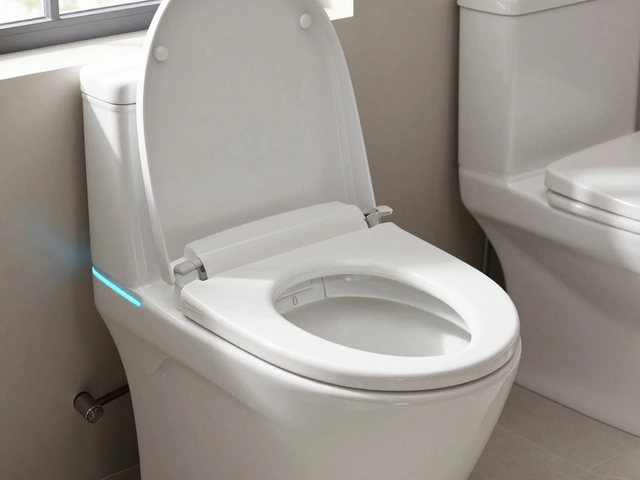When your trusty freezer starts making odd noises or stops keeping your ice cream solid, you find yourself at a crossroads—should you repair it, or is it time to buy a new one? It's a common dilemma for many homeowners.
Before you make a decision, several factors should be weighed, including the age of the appliance, the cost of repairs, and energy efficiency updates in newer models. Understanding these aspects can save you a significant amount of money and hassle in the long run.
Repairing a freezer is often more affordable than purchasing a new one, especially if the issue is minor or your freezer is relatively new. However, if your appliance is on the older side, investing in a new, energy-efficient model could save you money in energy bills over time.
- Evaluating Repair Costs
- Signs Your Freezer Needs Immediate Attention
- Energy Efficiency Considerations
- Tips for Extending Freezer Lifespan
Evaluating Repair Costs
When a freezer repair becomes a pressing necessity, the first question that naturally crosses most minds is, how much will this dent my wallet? Before rushing into any decision, it’s crucial to approach this predicament with careful consideration. Generally, the cost of fixing a freezer hangs on the nature of the malfunction, which can range from a simple thermostat failure to more intricate compressor issues. Minor fixes like a busted gasket could run you as low as $50, whereas a compressor replacement might soar above $400. Given these potential variances, understanding the source of the problem could save you from unnecessary expenses.
Now, it’s equally vital to consider the value of your current freezer against new models. If your machine is creeping past the decade mark, it might be time to weigh the cost of repair against investing in a modern, energy-efficient option. New freezers typically come with improved energy ratings, which can lead to lower utility bills over time. According to the U.S. Department of Energy, replacing older freezers with energy-efficient models can cut your electricity use by up to 10%. If you're repairing an older model, there could be hidden costs in energy inefficiency.
Consumer Reports often suggests the 50/50 rule—if the repair costs half or more of the price of a comparable replacement, it's better to replace. This is a practical guideline, but it's essential to consider other qualitative factors such as your budget constraints, environmental concerns, and sentimental value attached to the freezer. While the 50/50 guideline offers a useful yardstick, each situation requires personalization. An expert repair technician can typically diagnose potential issues and provide a cost estimate before work begins, which can prevent unexpected sticker shock.
DIY vs Professional Service
In some instances, a minor appliance fix is within the capabilities of a dedicated DIY enthusiast. Replacing a faulty gasket or thermometer might be something you could manage at home with minimal tools, reducing repair costs significantly. However, attempting more complex tasks such as handling refrigerant lines or electrical components without professional experience can result in further damage to your equipment or even personal injury. In such cases, seeking the assistance of a qualified technician ensures that repairs are conducted safely and efficiently. Moreover, certified technicians can come up with flexible financing options or warranties on their work, adding an extra layer of assurance.
The evaluation of repair costs isn’t solely an economic decision. It might also encompass the environmental impact of eventually adding to landfill waste with a discarded freezer versus fixing and using it longer. This consideration can sometimes tip the scales in favor of repair, especially if the appliance serves its purpose with only minor issues.
"Sometimes, keeping an appliance running longer is not just about your wallet, but also about your footprint," comments Amanda Everbach, an environmental strategist.Examining all these angles can lead you to a well-rounded decision that not only aligns with your finances but also your principles and practical needs. Armed with the right information and approach, the nagging question of 'repair or replace' becomes a decision you can tackle with confidence and clarity.
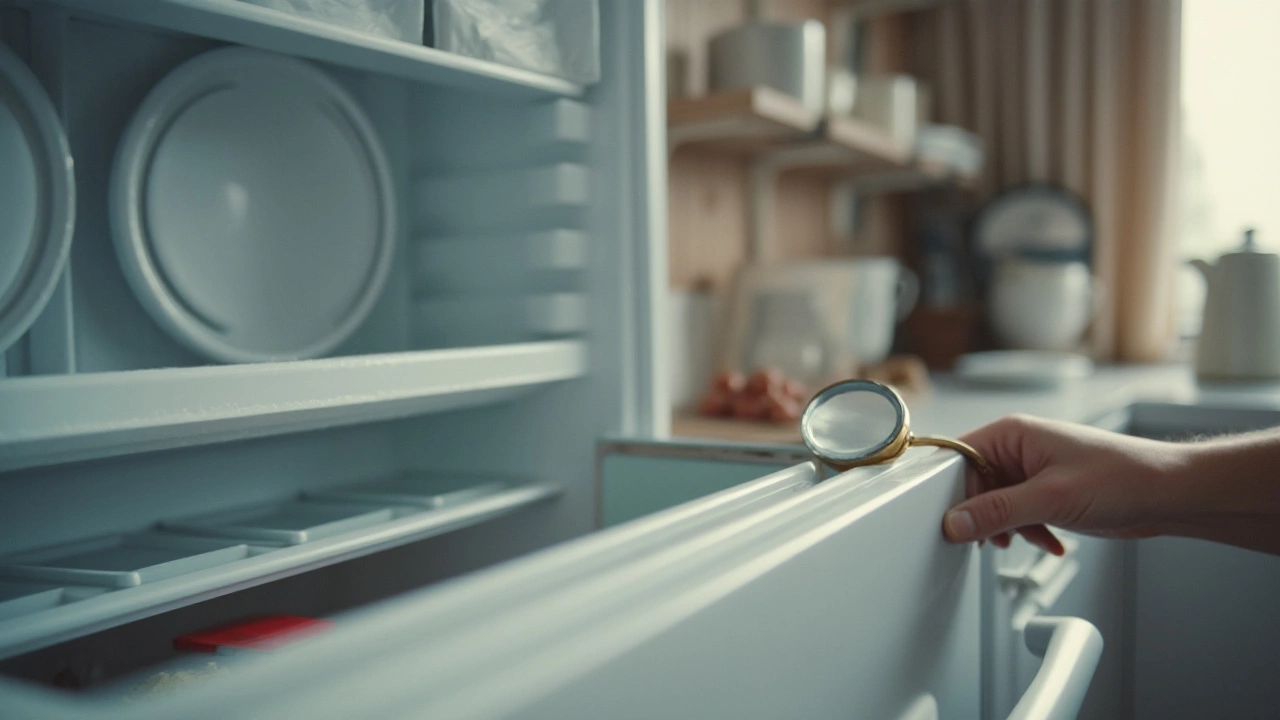
Signs Your Freezer Needs Immediate Attention
In the world of household appliances, freezers are unsung heroes. They work hard day and night, but it's easy to forget about their needs until something goes awry. Recognizing signs that your freezer might be heading towards a breakdown can help you avoid unexpected food spoilage and costly repairs down the road. It often starts with subtle signs that can be easily overlooked if you’re not paying close attention.
A classic indicator of trouble is when your freezer begins to resemble a polar landscape, encrusted with frost or ice more than usual. While some frost build-up is normal, especially in older models, heavy frost can mean that the door seal is not working properly or that the defrost components need to be checked. This condition not only reduces efficiency but can also lead to spoiled food. A more concerning symptom is when your freezer's temperature starts to become inconsistent, fluctuating from colder-than-freezing to barely cold enough. Such fluctuations can be the result of a failing thermostat or even a malfunctioning compressor.
Noise is another common tell-tale sign. Most freezers hum and thrum quietly, but if these sounds become louder or start to include clunking or buzzing, it's time to take notice. These noises can suggest parts are loose or wearing out. Benjamin Franklin once said, "An ounce of prevention is worth a pound of cure." This is apt advice when considering appliance care. Just like a car engine, your freezer has many moving parts that wear out over time.
Leaking water is another critical sign that your freezer might need attention. This can occur if the defrost drain is clogged, leading water to pool in places it shouldn't. Not only are such leaks a nuisance, but they can cause significant damage to your kitchen floor and cabinetry if left unchecked. Moreover, the smell is a strong indicator of problems. If your freezer emits strange odors even when it’s cleaned, it might be due to an electrical issue or trapped moisture.
If you find that your energy bills are unexpectedly high, and you haven’t significantly changed your usage, your freezer could be using more energy than necessary. Energy inefficiency often indicates that the appliance's components are working harder than they should. Understanding these signs helps you catch problems early, ensuring that repairs are affordable. Investing in periodic checks or simply being aware of these signals can prolong your freezer's life and reduce future stress.
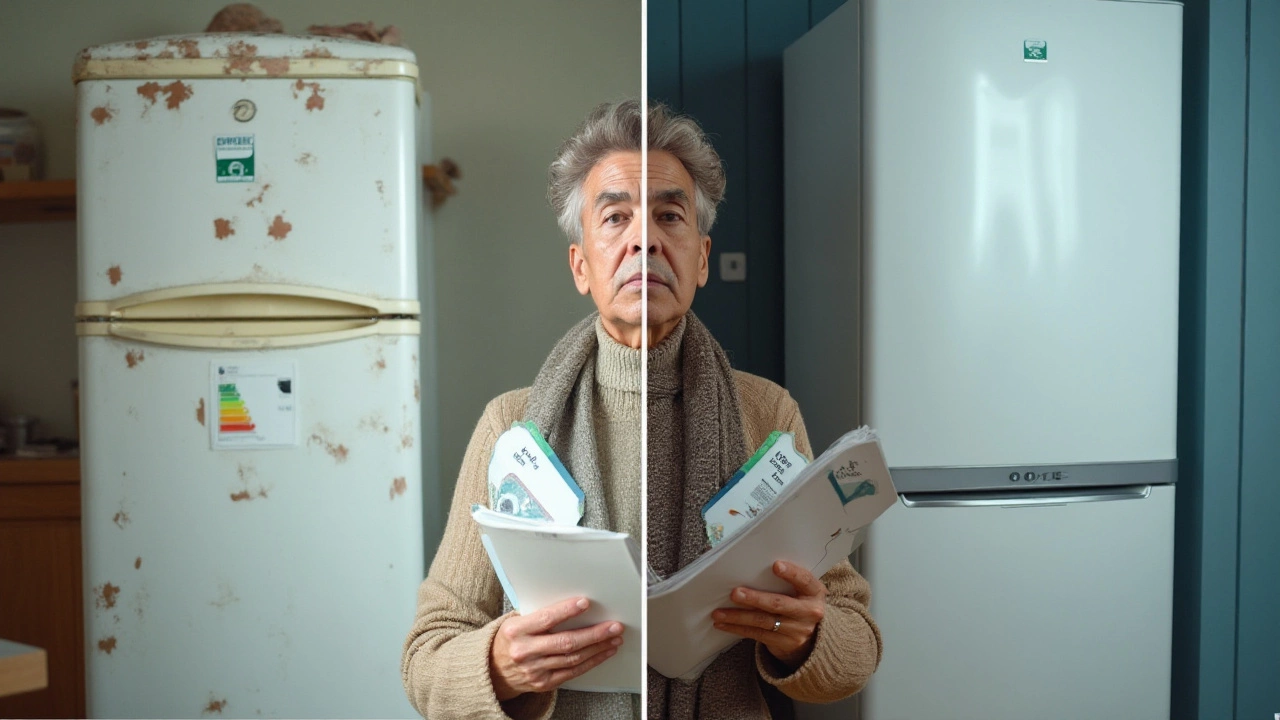
Energy Efficiency Considerations
When talking about whether to repair or replace an old freezer, energy efficiency plays a crucial role in the decision process. Older freezers, even those just a decade old, can be far less efficient than today’s models. These appliances might not only be using more electricity but also failing to keep your food optimally preserved. Many older units lack innovations like improved insulation and advanced refrigeration technology that reduce energy consumption significantly. By keeping data in mind, a newer freezer can consume 10% to 50% less energy compared to models over 10 years old, which could translate into substantial savings on your electricity bills annually.
The energy efficiency of a freezer is usually measured by its Energy Star rating, and opting for a freezer with this label is often a solid choice. Energy Star-rated appliances must meet strict guidelines set by the U.S. Environmental Protection Agency, making them about 10% more efficient than standard appliances. This is significant for those who are looking to reduce their environmental footprint. As expert energy consultant Alex Baines once said, "Upgrading to energy-efficient appliances isn't just good for your wallet—it's essential for the planet too." Such a transformation isn't just about savings but also about contributing to a more sustainable environment.
On occasions, it's helpful to understand specific figures. As per recent government data, modern Energy Star-rated freezers consume about 350 kWh annually compared to older units that can easily use over 700 kWh. Let’s put this into perspective: considering the average cost of electricity in the U.S. is roughly 13 cents per kWh, this efficiency improvement can amount to savings exceeding $45 per year. But beyond just numbers, consider the broader impact; lowering energy use also decreases your carbon footprint, supporting global energy conservation efforts.
However, simply ditching your old freezer might not always be the best immediate action. Before doing so, consider the overall picture: how long you plan to stay in your current home, potential rebates for energy-efficient appliances, or a repair that could temporarily boost efficiency. Have an energy audit if you haven't had one recently. Sometimes, simple maintenance like cleaning the coils and adjusting settings can enhance the performance of existing appliances.
Finally, remember an important point: not all replacements are created equal. Specific types of freezers, chiefly those with manual defrost, usually outperform their automatic defrost counterparts in energy conservation. Manual defrost freezers maintain a more consistent temperature profile, which often results in lower energy consumption over time. The choice between an upright or chest freezer may also have energy implications; typically, chest freezers offer improved energy efficiency due to better insulation and fewer air leaks. Crucial decisions like these should ideally be made with both your current needs and future prospects in mind.

Tips for Extending Freezer Lifespan
To help your freezer last as long as possible, these strategies can be your best allies. One essential tip is to regularly clean around the door seals. Dust, crumbs, and grime can accumulate, causing these seals to wear out faster. If the seals aren’t airtight, cold air escapes, and the energy efficiency of your appliance decreases significantly. Cleaning monthly with warm soapy water and a toothbrush will keep them in peak condition.
Another pivotal step in extending the lifespan of your freezer is to maintain the ideal temperature settings. Most freezers operate best at 0 degrees Fahrenheit. Setting the temperature too low can overburden the appliance and spur premature breakdowns. Moreover, this optimal temperature prevents freezer burn, ensuring your food stays fresh. A small investment in a thermostat can prove valuable here, guaranteeing the internal environment is just right.
One trick to keeping your freezer running smoothly is to avoid overfilling it. While it may be tempting to maximize space, doing so restricts air circulation and strains the compressor. This can lead to overheating and burnout of vital components. Instead, aim for a clutter-free interior with spaces between items allowing air to flow freely. Use shelves effectively and utilize stackable containers when possible.
Proper maintenance extends beyond internal care; don't forget about the exterior. Dust accumulating on the condenser coils, typically located at the back or beneath the unit, can cause significant problems over time. Cleaning these coils every six months with a vacuum or a coil brush can dramatically enhance the unit’s lifespan. In fact, studies suggest that well-maintained coils improve energy efficiency by up to 30%, saving money and increasing the overall health of your freezer.
Then, there’s power stabilization. Something that is often overlooked, but crucial for your appliance fix needs, is using a surge protector. Unexpected power surges, especially during storms, can cause immediate and irreparable harm to electrical components. Installing a surge protector provides a safety buffer, preventing such damage and extending the life of your unit.
"A little maintenance goes a long way in extending the lifespan and efficiency of your freezer," advises John Smith, an appliance expert with over 20 years of experience.
Finally, consider occasionally defrosting your freezer, even if it’s a self-defrosting model. Ice buildup, particularly on the walls and ceiling, impairs efficiency and wastes energy. By freeing up space and clearing ice, you not only save electricity but also reduce the workload on your freezer, encouraging a long and effective life. By following these tips, you should see your freezer overcoming the challenges of time with ease.



